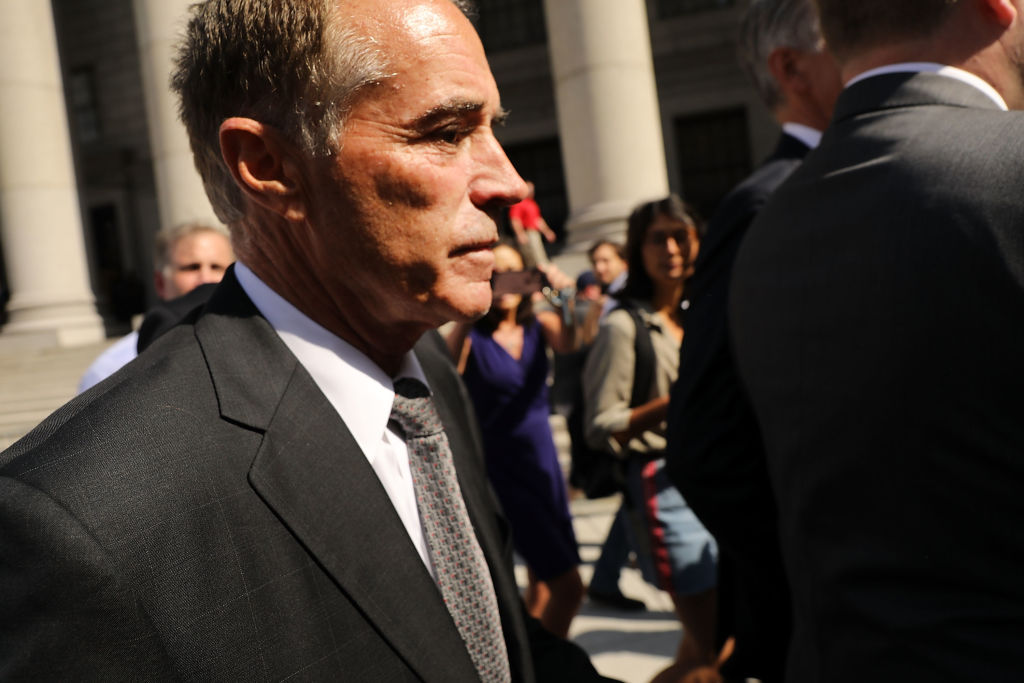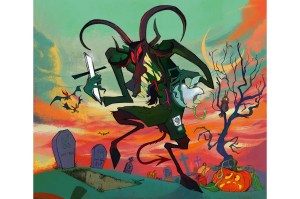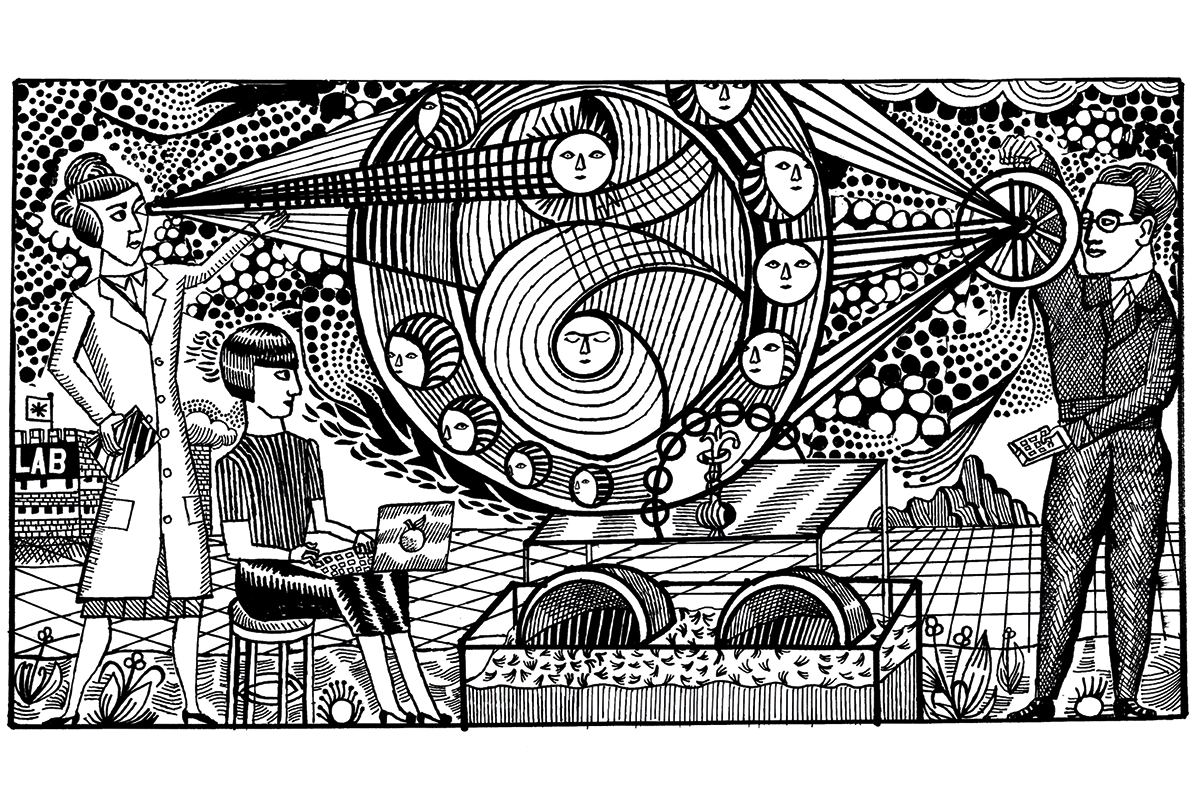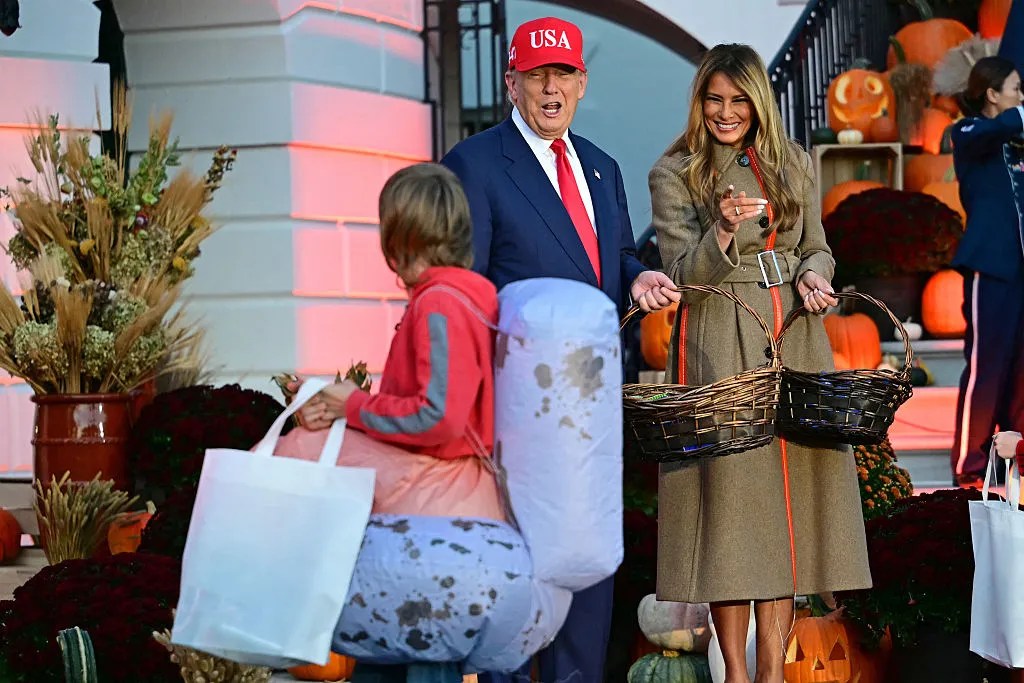In a season when front yards are dappled with signs advertising this candidate and that, especially Republicans in my county, I have seen not a single yard sign for our incumbent Republican congressman. This should be astonishing. But when the wise solon who represents you in The People’s House is Chris Collins, who was arrested in August for insider trading, the absence makes sense.
In the frenzy following his indictment, Rep. Collins indicated that he would step aside and permit local GOP bigwigs to substitute another candidate in his stead. But upon reflection — and perhaps after calculating that his congressional seat could be a valuable bargaining chip in cutting a deal with federal prosecutors — Collins reconsidered and stayed in the game.
National Democrats largely ignored the 27th District of New York until recent polls suggested that the race is a toss-up. This is a populist, blue-collar, rural district, the heart of New York’s Trump Country, though its western edge of affluent Buffalo suburbs calls the shots for both Republicans and Democrats, and the rural county panjandrums grouse but acquiesce. Although Collins was the first sitting member of Congress to endorse Trump, he has no purchase on the affections of the people. Even his supporters admit that he is a strutting cock of the walk of the sort who thinks himself too lofty a personage to march in local parades.
Collins seems to have donned a cloak of invisibility. For the candidate is nowhere to be seen. He does not do interviews with newspapers. Or radio. Or TV. He does not appear at Meet the Candidates fora. Perhaps he’s getting ready to rat out some fellow malefactor, because he appears to be rehearsing for the witness protection programme.
His candidacy exists solely over the airwaves, as a series of relentlessly negative, fact-distorting, and witless attacks on his opponent, Democrat Nate McMurray, town supervisor of the optimistically named Grand Island.
McMurray is running as the Not-Collins. His chief campaign ad features various salts (and an occasional pepper) of the earth reciting ‘America the Beautiful’. He has distanced himself from his party’s national leadership, saying of the once and perhaps future Speaker of the House that, ‘I have no relationship with her whatsoever… I don’t know anything about Nancy Pelosi.’
I had written McMurray off as a cipher. But then I read a lengthy profile by the pioneering online journalist Howard Owens, owner-editor of The Batavian, and a shrewd assessor of public men. In conversation with Owens, McMurray broke from party orthodoxy in interesting ways, calling himself a capitalist (as opposed to crony capitalist Collins) and a free trader — the latter position dicey in our protectionist region. He pledged at least tepid allegiance to the Second Amendment and said that Uncle Sam ought not to play world policeman. He was more articulate than your average regurgitator of MSNBC talking points.
Then again, Upstaters have been courted with the honeyed words of mildly populist moderate Democrats before, only to be betrayed once the candidates were in office, where the awesome responsibilities appertaining thereto encouraged them to speak and vote like standard-issue upper-middle-class, identity-politics liberals. (See: Gillibrand, Kirsten.)
I actually wasted several minutes of that time that flies wondering for whom I should vote:
For Collins, as an extended middle finger to the wagging index fingers of boring propriety whose owners shrill, ‘You can’t vote for him!’
For McMurray, who came off as more thoughtful than the typical cliché-spouter in the Owens interview?
Or for Larry Piegza, amiable candidate of the Reform Party, the institutional shell of the proto-Trumpian Ross Perot movement of 1992, who wears a ‘Make America Great Again’ ballcap?
But then this past weekend I emceed, as I have for 22 consecutive years, an evening of readings from the novels and poetry and writerly vademecums of the late John Gardner, our town’s native-son litterateur. We gather at the unselfconsciously funky Pok-a-Dot, Gardner’s favourite diner, and over the whir of fans and sizzle of grill-grease a couple dozen of us, some driving in from as far as Indiana and Philadelphia, conjure Gardner’s wild and troubled spirit. The politics of those assembled range from socialist to petition-collecting Republican, from League of Women Voters liberal to Trump-supporting deer hunter, but none of that matters.
Stories. Fellowship. The beauty of the language. Raucous post-reading laughter over drinks at O’Lacy’s Pub. Politics — the sordid scramble for coercive power — is nothing next to these.
So I’m voting for Jim Banks, a pro-Bill of Rights ‘Democratic Republican’ who is waging a write-in candidacy for Chris Collins’s seat. I met Jim at a great coffee house, Moon Java, which recently hosted the production of an absurdist play in which my wife, Lucine, sang Lou Reed’s ‘Vicious’ while symbolically burying the playwright, Eric Zwieg. Jim Banks praised the show, and the deal was sealed.
John Gardner, one of the last of the true believers, said that, ‘Art leads, it doesn’t follow. Art doesn’t imitate life, art makes people do things.’
I don’t know about that, but I do know that politics makes people do things, and most of those things are very very ugly.
Bill Kauffman is the author of 11 books, including Dispatches from the Muckdog Gazette (Henry Holt) and Ain’t My America (Metropolitan).

























